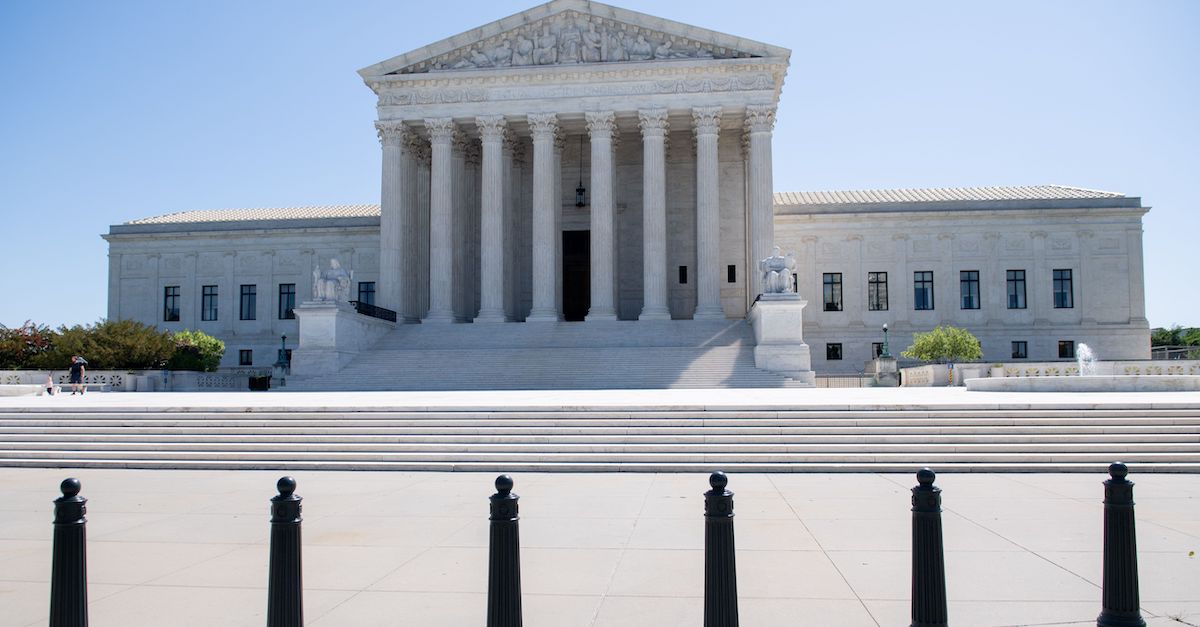
The State of Alabama has now appealed the Eleventh Circuit Court of Appeals’ decision denying a stay in a case about voting rights during the pandemic. Alabama tried to require absentee voters to produce copies of identification records and notarized ballots, and also, essentially prohibited curbside voting.
A group of Americans over age 65 with health conditions took issue with that, claiming that the requirements placed them at particular risk of contracting COVID-19. Both the District Court and the Circuit Court ruled against Alabama and in favor of the at-risk voters. U.S. District Judge Abdul K. Kallon called Alabama’s arguments “underwhelming,” and pointed out that creating extra health risks for already at-risk voters during a global pandemic was unsafe and unnecessary. The Circuit Court agreed, writing that it was unduly burdensome to force “high-risk Alabamians to vote in-person inside a polling place in contravention of the CDC’s and Alabama’s recommendation to minimize in-person interactions.”
Now, the July 14 runoff in Alabama is nearly upon us.
In Alabama’s pending petition for an emergency stay filed before Justice Clarence Thomas, Alabama challenged the Circuit Court’s finding that the state’s conditions on absentee voting “reflects a serious lack of understanding of or disregard for the science and facts involved here.”
“[N]o voter need ‘risk death’ when she can, for example, simply meet two masked neighbors outside for a few moments while they watch each other, from several yards away, sign an absentee ballot. Yet here we are, where such a lack of imagination is enough to grant a federal court the power to rewrite State election law in the middle of an election,” the petition said.
Alabama also argued that because voting is already happening, a court order that changes the rules at the eleventh hour “threatens the integrity of the election, undermines voter confidence in that election, and creates an unworkable mishmash of law that cannot be uniformly administered.”
Per the petition:
Despite the ongoing election, and despite this Court’s “repeated[] emphasi[s] that lower federal courts should ordinarily not alter the election rules on the eve an election,” Republican Nat’l Comm. v. Democratic Nat’l Comm., 140 S. Ct. 1205, 1207 (2020) (citations omitted), the district court entered a preliminary injunction on June 15 that rewrites Alabama’s election law by prohibiting election officials in three counties from enforcing modest anti-fraud requirements for absentee voting. App. 29-30. (Election officials in the remaining 64 counties are still required to enforce State law, creating a patchwork of uneven treatment.) The injunction also enjoins Secretary of State John Merrill from prohibiting counties from offering curbside voting, even though the Secretary has concluded that trying out a brand-new voting procedure during a pandemic would create more logistical and safety problems than it would fix and is likely unlawful in any event. App. 30. Why did the district court do this? Because, according to its findings, the State’s absentee-ballot requirements—requiring a copy of the voter’s ID with an application and the signature of either two witnesses or one notary public with the ballot— could dissuade some hypothetical eligible voter from voting, given that the State has not “completely eliminate[d] the risk of exposure” to COVID-19.Thus, because three voters from Mobile—the individual plaintiffs in this case—“feel it is … unreasonable to comply with” Alabama law “because of COVID-19,” they don’t have to comply. App. 78. And instead of tailoring relief to those three plaintiffs who “feel” that the law is “unreasonable,” the district court crafted a sweeping injunction that will directly affect all voters in three Alabama counties, potentially alter other election practices statewide, and threaten the integrity of an ongoing election.
The state’s petition went on to call the both the district court and the circuit court “nonchalant” and “Pollyannaish” for opining that striking down Alabama’s voting requirements required the state to do very little.
According to Alabama’s petition, any argument that additional voting requirements require voters to choose between their health and their vote creates a “false dichotomy.” One of the plaintiffs, it argued, wasn’t actually concerned about his health – but rather, the cost of ink required for printing copies of his identification; another could easily have asked her grandchildren to make copies for her. As for the state’s purported prohibition on curbside voting, the petition argued, rolling out such a new procedure mid-pandemic would be ill-advised and extremely burdensome.
[image via SAUL LOEB/AFP via Getty Images]